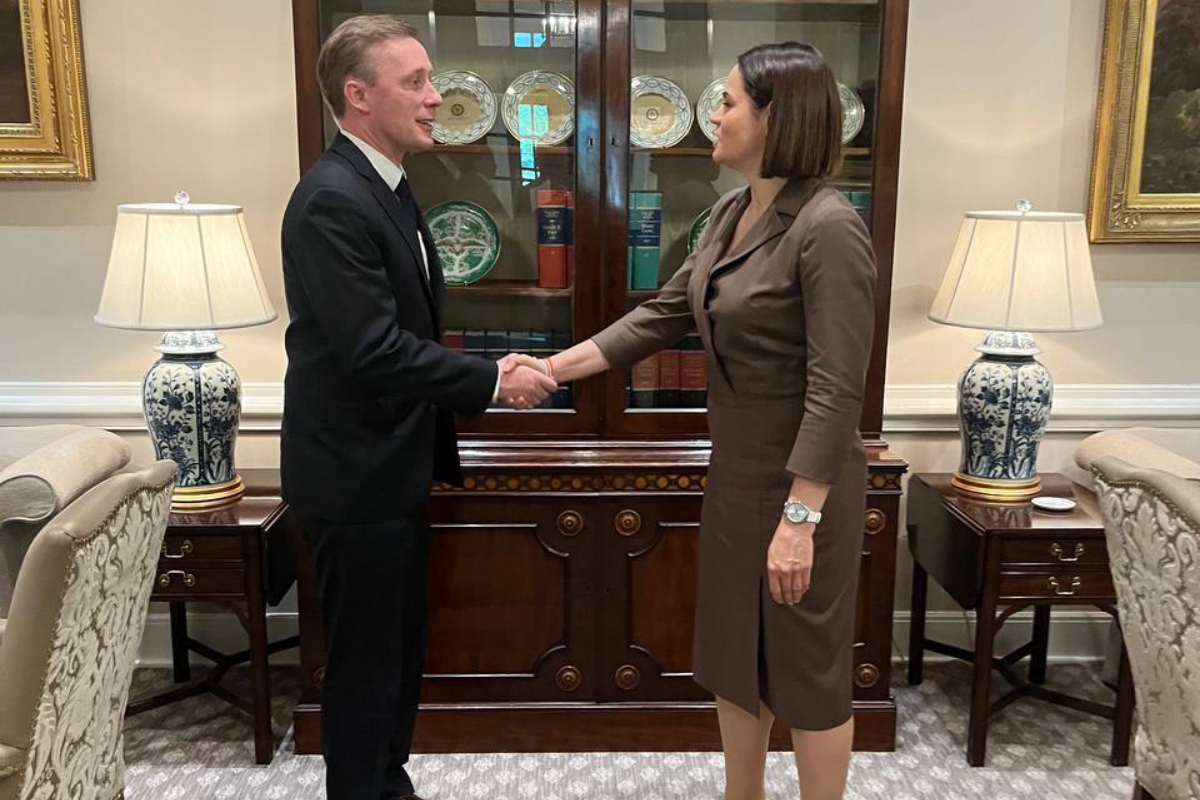Multi-level diplomacy of democratic forces
 The situation has gotten better
The situation has gotten better

Democratic forces have built multi-level communication with the West. These efforts are most fruitful in countries with a large or cohesive diaspora—Poland, Lithuania, and the USA. This is due to the political organizations having limited tools for interaction with activists inside the country under authoritarian reaction.
The leader of democratic Belarus, Sviatlana Tsikhanouskaya, the United Transitional Cabinet, the Coordination Council, and other political organizations organize effective communication at international, national, and regional levels. This allows them to adjust the focus of foreign governments regarding the situation in Belarus and to promote the interests of the people.
Strategic dialogue of the democratic forces with the USA guarantees a high level of interaction with the American establishment—and consequently, support for civil society and independent media in the medium term.
Leaders of the “Big Seven” mentioned Belarus in the final statement of the G7 summit, which is one of the most significant results of Tsikhanouskaya’s team’s diplomatic efforts.
The USA has extended sanctions against Belarus for another year. The sanction approach is consistently promoted by democratic forces. Although lately, political organizations have adjusted their rhetoric—with an emphasis on maintaining mobility and connections for Belarusians with Europe, while the restrictions are addressed exclusively to Lukashenka’s regime.
Democratic forces have advanced the interests of Belarusian youth in communications with Polish politicians and ministries. Legislative innovations are aimed at simplifying the conditions for the validation of educational documents by Belarusian citizens. Lukashenka’s regime has created obstacles for graduates in obtaining the necessary documents and, accordingly, continuing their education in EU countries. The amount of scholarships for persecuted students from Belarus under the Kalinowski program is also increasing.
Activists of independent trade unions remain a significant player at the international level, despite their liquidation and persecution in Belarus. The International Labour Organization at the UN demands that the regime allow foreign doctors to visit political prisoners. However, previous ILO impact measures have yet to yield results. Thus, economic losses from restrictions are compensated by activating interactions with Russia.
Communication of democratic forces with Western capitals brings the most significant effect. Attempts by political organizations to influence the domestic agenda are significantly limited in a situation of repression against dissenters. Activities in Belarus do not receive public coverage due to the possibility of persecution by the regime’s guards.
Thus, democratic forces retain the potential to become an active political player during new protest mobilizations of society.
Subscribe to our newsletter




Situation in Belarus
Constitutional referendum: main consequences


 Video
Video
How to count the political prisoners: are the new criteria needed?


 Video
Video
Paternalism In Decline, Belarusian Euroscepticism, And The Influence Of Russia


 Video
Video












